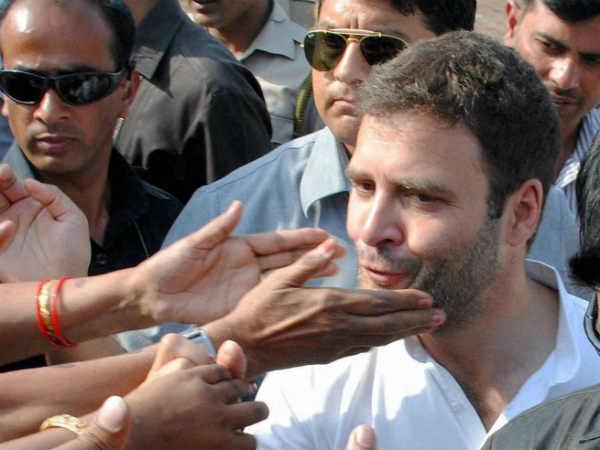The accusation that Rahul Gandhi and the Congress party are orchestrating a deliberate strategy to divide Hindus while consolidating minority votes is a serious charge that warrants scrutiny. According to the narrative, Congress has identified Muslims and Christians as a reliable vote bank and is now focusing on fracturing Hindu unity to weaken their electoral opposition, particularly the Bharatiya Janata Party (BJP), which has historically drawn strength from a consolidated Hindu voter base. The recent acknowledgment by Rahul Gandhi of his failure to adequately address the concerns of Other Backward Classes (OBCs), as reported in The Telegraph India on July 25, 2025, is cited as a strategic pivot to exploit caste divisions within Hindu society. This move is framed as part of a broader conspiracy to destabilize national unity for political gain.
The Congress party’s push for a caste census, as highlighted in Gandhi’s speech at the ‘Bhagidari Nyay Sammelan’ in Delhi, is portrayed as a calculated maneuver. Gandhi admitted that not conducting a caste census earlier was his personal mistake, not the party’s, and vowed to rectify it by implementing such surveys in Congress-ruled states. He described the Telangana caste census as a “political earthquake” that would have far-reaching consequences. Critics argue this focus on caste is not about social justice but about creating fault lines within Hindu society. By emphasizing caste identities, particularly among OBCs, Congress could fragment the Hindu vote, which the BJP has often unified under a broader “Hindu” identity. This strategy allegedly aims to dilute the BJP’s electoral dominance by appealing to specific caste groups while maintaining support from minority communities.
The narrative further suggests that Congress is willing to risk national stability to achieve power. Posts on X, such as one from Political Views on July 26, 2025, claim that Gandhi’s focus on caste politics is a weapon to be used until it “crashes and burns” in 2029, implying a long-term strategy to exploit social divisions. Another post by Malal on July 15, 2025, accuses Congress of initiating a “Balkanisation of India” project, turning resourceful communities into enemies of the state. These sentiments reflect a perception that Congress is prioritizing power over unity, potentially creating conditions for social unrest or even civil war by deepening caste and religious divides.
Reservation policies are central to this alleged conspiracy. The query posits that Congress sees reservation as a tool to divide Hindus by pitting caste groups against each other. Gandhi’s advocacy for a caste census and increased representation for OBCs, Dalits, and tribals is seen as a way to promise greater reservation benefits to specific groups, thereby creating competition and resentment among Hindu castes. For instance, his statement that OBCs are the “productive power” of the country, yet have negligible representation in power structures, could be interpreted as an attempt to mobilize OBC voters by highlighting their marginalization. Critics argue this is less about empowerment and more about creating a vote bank by stoking caste-based grievances.
Moreover, Congress’s historical record is cited as evidence of its divisive tactics. The party’s failure to include OBC sub-quotas in the women’s reservation bill during the UPA era, as noted in a 2023, Telegraph India article, is seen as a missed opportunity for genuine social justice, now being opportunistically revisited to regain political ground. The BJP has countered this narrative, with leaders like Gaurav Bhatia accusing Congress of insulting OBCs, including Prime Minister Narendra Modi, who belongs to an OBC community. This suggests that Congress’s newfound focus on OBCs is a reaction to its electoral losses rather than a sincere commitment to their welfare.
The accusation of fostering civil war is particularly grave. By emphasizing caste and religious identities, Congress is allegedly creating a volatile social environment where communities are pitted against each other. Posts on X, such as one by Asura from July 2024, claim that Gandhi has a history of supporting measures to divide Hindus, such as granting separate religion status to Jains and Lingayats. This narrative paints Congress as a party willing to fragment the nation’s social fabric to regain power, even at the cost of long-term stability.
Strategies to Counter Such Political Tactics
To safeguard the nation against political parties that allegedly prioritize power over unity, several proactive measures can be adopted. These strategies focus on fostering national cohesion, promoting critical awareness, and strengthening institutional safeguards without relying on any single political entity.
Promote National Unity Through Education and Dialogue:
– The education system should emphasize shared national values, history, and cultural heritage to counter divisive narratives. Civic education programs can highlight the dangers of caste and religious polarization, encouraging citizens to prioritize national identity over subgroup affiliations.
– Community dialogues, facilitated by civil society organizations, can bring together diverse caste and religious groups to discuss common challenges and aspirations. These platforms can reduce mistrust and counteract attempts to exploit social divisions.
Strengthen Media Literacy:
– Political parties often use media to amplify divisive narratives. Citizens must be equipped with media literacy skills to critically evaluate news and social media content. Workshops and campaigns can teach people to identify propaganda, misinformation, and polarizing rhetoric, such as the inflammatory posts on X that accuse Congress of anti-national agendas.
– Independent fact-checking organizations should be supported to verify claims made by political leaders, especially on sensitive issues like reservation and caste census.
Transparent and Inclusive Policy-Making:
– Policies like reservation and caste census should be debated openly, with input from all communities to prevent them from being weaponized. A national commission, comprising representatives from diverse groups, could oversee the implementation of such policies to ensure they serve social justice rather than political agendas.
– Data from caste censuses should be handled transparently, with clear guidelines on how it will be used to avoid perceptions of favoritism or division.
Empower Grassroots Movements:
– Grassroots organizations that promote inter-community harmony can counter divisive politics. These groups can mobilize local leaders to advocate for unity and expose attempts to exploit caste or religious identities for votes.
– Youth-led initiatives, such as interfaith and intercaste forums, can foster solidarity and resist narratives that pit communities against each other.
Strengthen Electoral Oversight:
– The Election Commission of India must rigorously monitor campaign rhetoric to penalize parties that incite division or violence. Strict enforcement of the Model Code of Conduct can deter leaders from making inflammatory statements about caste or religion.
– Regulations on political funding should be tightened to prevent parties from using financial incentives to manipulate voter groups, ensuring a level playing field.
Encourage Political Accountability
– Citizens should demand accountability from all parties, not just Congress, by scrutinizing their policies and track records. Voter awareness campaigns can highlight how parties have historically handled issues like reservation and social justice, enabling informed choices.
– Independent watchdogs should track promises made during elections, such as Congress’s pledge for a caste census, to ensure they are not mere electoral ploys.
Foster Economic and Social Inclusion
– Economic disparities often fuel divisive politics. Government programs that provide equal opportunities for education, employment, and entrepreneurship across all communities can reduce the appeal of caste-based promises.
– Social inclusion initiatives, such as mixed-community housing or cooperative projects, can break down barriers and reduce the effectiveness of divisive strategies.
The narrative that Rahul Gandhi and the Congress party are conspiring to divide Hindus through reservation policies and caste censuses, while securing minority votes, paints a picture of a party prioritizing power over national unity. Whether this is a deliberate conspiracy or a misinterpretation of political strategy, the risk of social division is real in a diverse nation like India. By promoting unity, enhancing media literacy, ensuring transparent policies, empowering grassroots movements, strengthening electoral oversight, demanding accountability, and fostering inclusion, the country can guard against any political party’s attempts to exploit social fault lines. These measures empower citizens to resist divisive tactics and prioritize the nation’s long-term stability over short-term political gains.





